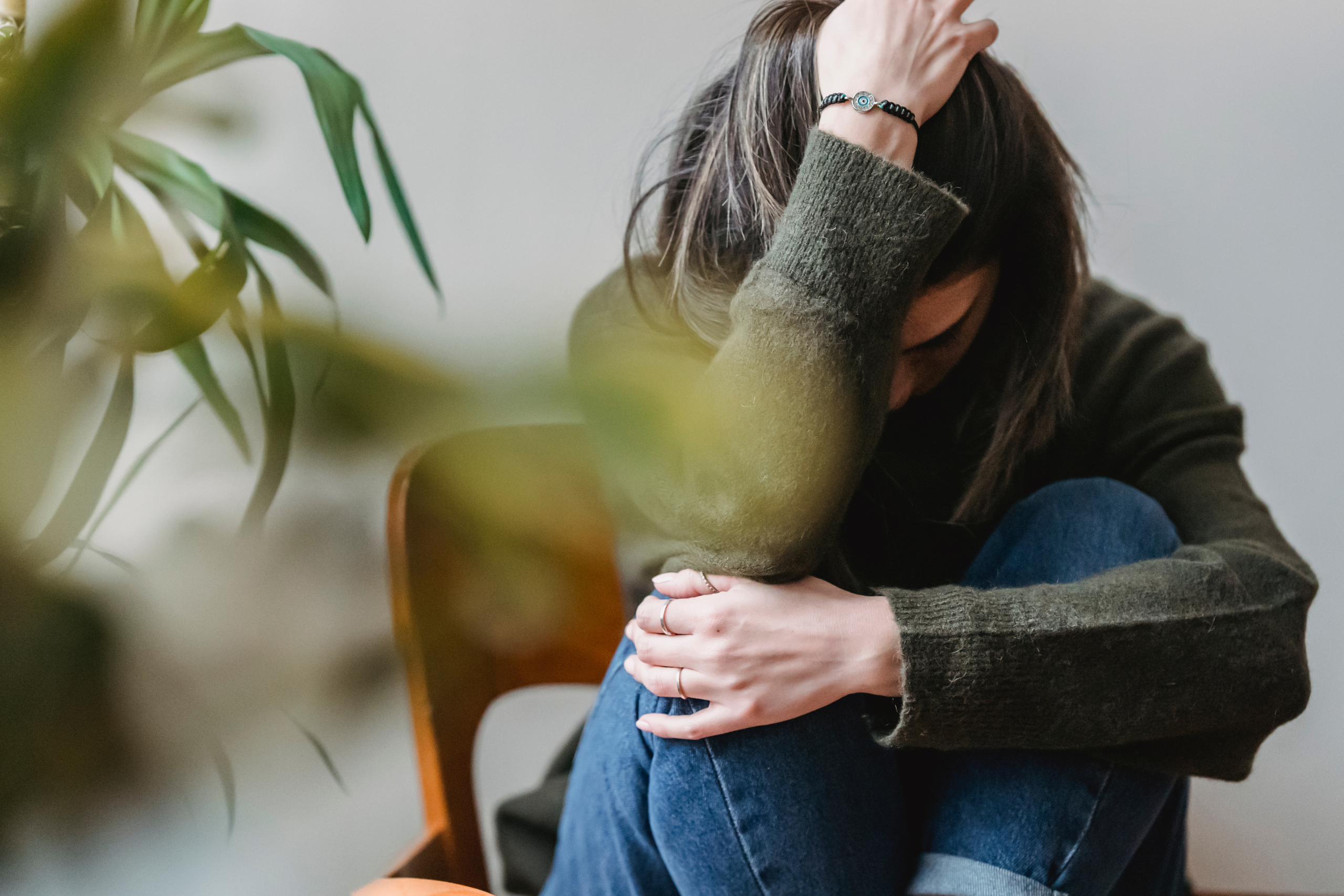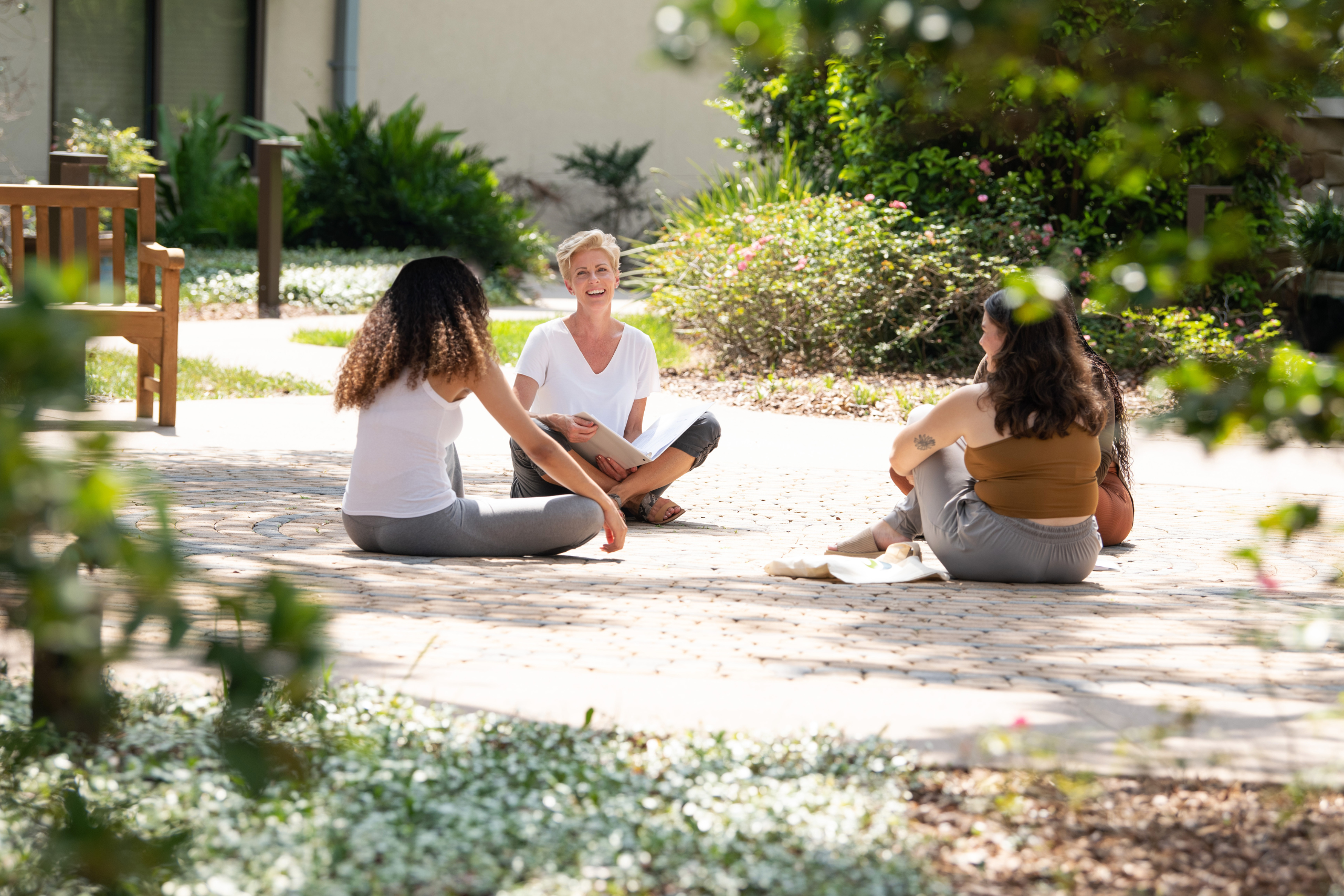Recovery is easier and more sustainable when you have company every step of the way.
There’s a truism in the eating disorder world that goes like this: Eating disorders thrive in isolation.
As the clinical nutrition manager at Koru Spring, I know firsthand how common that isolation is. In countless discussions with our residents, I’ve heard how alone many feel—sometimes for years before they enter treatment. They believe no one “gets” them. They think they can’t be honest about what they’re going through, even with their loved ones, because no one will understand, or they’ll be judged.
As a consequence, they put up walls for protection, and stop connecting with others. No surprise, their ED gets worse.
We know about this tendency toward isolation, and understand it completely. It’s a big reason why we take a team approach with almost every aspect of treatment.
In effect, we flip the script. We challenge the isolation. From Day 1 of treatment, we surround residents with a community that understands what they’re dealing with, then we get to work.
The team approach works in so many areas
Here’s how we utilize the power of community at Koru Spring.
The treatment team:
This is the core group of highly trained experts who look after each resident. Residents are assigned a treatment team that is tailored to their needs.
Team members normally include a dietitian, primary therapist, a psychiatrist, and a medical provider.
Depending on patient needs, this core team may also consist of a nurse, peer support specialist, personal trainer and others.
The power of this team is their varied training and expertise. Each views the resident from a different perspective. When taken together, these viewpoints provide a comprehensive, coordinated approach that adds up to very powerful medicine.
Group therapy:
When a person has an eating disorder, they often communicate through their ED in unhelpful ways. This can isolate them, warp their sense of reality, and alienate the people around them. Unhelpful communication habits sometimes form, which are hard to break.
Group therapy sessions can help immensely with all of that. They help people learn to communicate in healthy ways.
There’s a level of acceptance that is present in these groups that is also very helpful. People understand you, often because they’ve experienced the same thoughts and behaviors themselves.
Eventually, thanks to the group-setting dynamic, people can learn to communicate more honestly and directly. They no longer speak through their ED, or at least recognize when they’re doing so.
Food-related outings:
Always led by a dietitian, these small groups of residents go out to cafes, restaurants, and other eating establishments. At Koru Spring, we also utilize a learning kitchen where groups of residents go to learn new recipes and cooking techniques.
These outings accomplish several important things. They directly challenge the isolation that often accompanies EDs. They help normalize food-related environments that before were seen as scary, hostile, or rife with triggering potential.
They’re also great learning and experiential opportunities. For example, if issues come up with residents while they’re on an outing, we deal with them right away in a safe, supportive environment where they’re surrounded by their community and under the care of a trained team member.
And yes, these outings are often fun. They’re a great reminder that eating out with others can be one of the great joys of life.
Aftercare team:
The power of team and community does not end when a person leaves treatment. That would be risky, because remember, EDs thrive in isolation.
Therefore, it’s simply a matter of taking that all-important lesson of team with us when we leave. The strength, compassion, and wisdom of your recovery team will protect and guide you always.
That’s why we help our residents build their aftercare team well before they leave the clinic. There may be new members who are added to the team, as well as old members who were there before the person came into treatment.
It’s also important that the resident helps choose their team, so they’re comfortable and confident about the setup when they transition out of residential care or step down to lower levels of treatment. A resident needs to trust every team member.
Friends and family are also key members of the aftercare team. To help ensure that loved ones provide empathetic and knowledgeable support to the resident, most top ED clinics (including ours) offer ED education programs for loved ones while their loved one is in treatment.
The ultimate goal of the aftercare team? To provide a seamless transition to a supportive real-world environment that offers a person the best chance of long-term recovery.
Final thoughts on the power of team in ED treatment
Many people come into treatment after having been isolated for months or even years by their eating disorder. In many ways, the ED has taken over their lives. It has become the only “companion” they have.
ED treatment begins challenging that on the very first day. It is no longer just you fighting back against the ED, or being controlled by it. Instead, you have a team in your corner with you.
That’s powerful stuff, and it can make all the difference.




